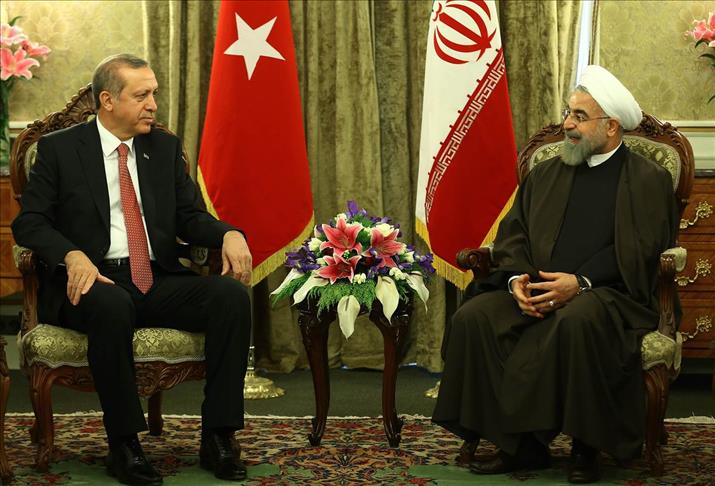Iran, Turkey trade may boost post nuclear deal: experts
Turkey, an oil importing country, expects to benefit from low oil prices post Iran nuclear deal

By Ovunc Kutlu
ANKARA
The Iran nuclear deal will create new trade opportunities for Turkey in the energy field, experts say.
"The deal will open new trade opportunities for Turkey, in particular in the energy field," Simone Tagliapietra, a visiting fellow at the Brussels-based think tank, Bruegel, told Anadolu Agency Tuesday.
"The lifting of international sanctions will allow Iran to consistently expand its oil and gas market," Tagliapietra said.
Sijbren de Jong, a strategic analyst at The Hague Centre for Strategic Studies, agreed. "Sanctions in the areas of oil and gas trade, financial transactions, are believed to be lifted," de Jong said.
"Also, Iranian assets will be unfrozen. This will greatly help the Iranian economy," he added.
Iran expects a surge in investment to flow into its economy after the deal and global energy giants are expected to get permission to enter the country to get a slice of the country's untapped oil and gas reserves.
"New investments will allow Iran to develop its gas sector, which is currently still underexploited," Tagliapietra said.
"Considering that the country owns the largest gas reserves in the world, this will represent a game changer for both world gas markets and Turkish gas market," he said.
According to BP's Statistical Review of World Energy published in June 2014, Iran has the biggest proven natural gas reserves in the world, estimated at 33.8 trillion cubic meters.
"In fact, in the future, additional volumes of gas might well reach Turkey if a new trade scheme will enhance the currently weak gas relations between the two players, in the interest of both of them," Tagliapietra added.
Turkey imports around 6.6 billion cubic meters of gas on average from Iran every year. Meanwhile, Turkey's Trans Anatolian Natural Gas Pipeline (TANAP) project, expected to complete in 2018, will carry 16 billion cubic meters of gas per year. However, this volume is projected to increase in the following years, which may make room for potential Iranian gas exports to Europe.
According to a July 10 report by the global credit ratings organization, Fitch, it is possible Iran may export its gas to Europe via TANAP once the necessary infrastructure gets completed.
In addition, Tagliapietra said that Tukey would also benefit from low oil prices once crude exports from Iran pushed the prices further down.
"New oil supplies from Iran will naturally have an impact on global oil prices, thus also favoring Turkey's oil import needs," he said.
De Jong also claimed that Russia, Saudi Arabia and Israel would be affected negatively because of the Iran nuclear deal.
"Russia will stand to lose a lot when Iranian oil will eventually make its way back to the world market. When Iran was sanctioned, Russia stepped into the void," he explained.
De Jong regarded Saudi Arabia as another loser, saying the kingdom will see its regional rival gaining power; adding: "Israel is another loser, it will fear that Iran now will gain in strength".
Earlier on Tuesday, Turkey's Energy Minister Taner Yildiz hailed the nuclear deal between Iran and the world powers group, P5+1.
"Removal of sanctions on Iran is significant for investments in the country as well as oil prices," Yildiz said.
Since Turkey is an oil importing country, low oil prices benefits its economy and current account deficit.
Iran and the world powers group P5+1 successfully reached an agreement on a detailed nuclear accord on Tuesday that allows lifting of sanctions on Iran in exchange for allowing inspections of its nuclear sites.
When sanctions are removed, Iran is expected to increase its oil and natural gas exports and production volumes.
Anadolu Agency website contains only a portion of the news stories offered to subscribers in the AA News Broadcasting System (HAS), and in summarized form. Please contact us for subscription options.

